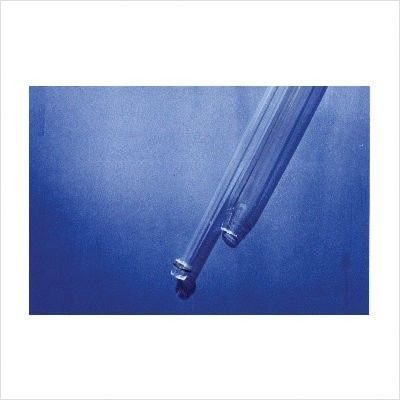A Brief Introduction to Coliwasa Samplers
Coliwasa samplers are a type of tissage, or fabric weaving, that is commonly found in the indigenous communities of Mexico and Guatemala. Tissage is a type of craft that has been practiced in Mesoamerica for centuries, and it is still an important part of the cultural traditions of many indigenous communities today. Coliwasa is a type of tissage that is characterized by its colorful designs and its use of recycled materials.
The word coliwasa comes from the Nahuatl word for "thread" or "string". Coliwasa samplers are made by weaving together strips of colorful cloth, often recycled from old clothing or other textile products. The strips of cloth are first sewn together to form a long strip, and then they are woven on a simple loom. The finished product is a colorful, striped fabric that can be used for clothing, blankets, or other household textile items.
Coliwasa samplers are traditionally made by women, and they are often given as gifts to friends and family members. The colorful designs of coliwasa samplers are said to symbolize the vibrancy of life and the interconnectedness of all things. Many indigenous communities believe that the act of creating coliwasa samplers is a way of giving thanks to the earth and all of its creatures.
Coliwasa samplers are becoming increasingly popular outside of Mexico and Guatemala, as more people are interested in purchasing handmade textile products. If you are interested in purchasing a coliwasa sampler, you can likely find one at a local market or online. You can also learn how to make your own coliwasa sampler by taking a workshop or class from a local artist or craftsperson.
Types of Coliwasa Samplers
1. There are many types of COLIWASA samplers
2. The most common type is the bucket sampler
3. Other types include the dipper sampler, the piston sampler, and the Whirl-Pak® sampler
4. Each type has its own advantages and disadvantages
The COLIWASA (Contamination of Land by Intensive Wastewater Application Systems) is a problem that has been identified in many countries. In order to mitigate this problem, various sampling methods have been developed. This article will discuss the three most common types of COLIWASA samplers: the bucket sampler, the dipper sampler, and the piston sampler.
The bucket sampler is the most common type of COLIWASA sampler. It is a simple device that consists of a bucket with a detachable lid. The bucket is filled with water from the contaminated site and then brought back to the laboratory for analysis. The main advantage of the bucket sampler is its simplicity. However, the main disadvantage is that it is not very accurate.
The dipper sampler is another common type of COLIWASA sampler. It is a more sophisticated device that consists of a dipper with a detachable lid. The dipper is filled with water from the contaminated site and then brought back to the laboratory for analysis. The main advantage of the dipper sampler is its accuracy. However, the main disadvantage is that it is more expensive than the bucket sampler.
The piston sampler is the most sophisticated type of COLIWASA sampler. It is a device that consists of a piston with a detachable lid. The piston is inserted into the water at the contaminated site and then brought back to the laboratory for analysis. The main advantage of the piston sampler is its accuracy. However, the main disadvantage is that it is more expensive than the dipper sampler.
The Whirl-Pak® sampler is a type of COLIWASA sampler that is similar to the piston sampler. It is a device that consists of a pouch with a detachable lid. The pouch is filled with water from the contaminated site and then brought back to the laboratory for analysis. The main advantage of the Whirl-Pak® sampler is its accuracy. However, the main disadvantage is that it is more expensive than the piston sampler.
Coliwasa Composite Liquid Waste Sampler. Nasco


This Coliwasa permits representative sampling of multiphase wastes for a wide range of viscosity, corrosivity, volatility and solids content. The unit can be used to sample containerized liquid wastes, except those containing ketones, nitrobenzene, DMF, mesityl oxide and THF. Made of HDPE and designed to EPA standards. Coliwasa consists of a 5-Ft x .75" ID tube and closing valve. Sampler holds approximately 3oz per foot.
Coliwasa Disposable Glass, Viton Seal


Coliwasa glass incorporates a specially designed Viton® seal which eliminates sampling loss due to leakage, now also available in 18" lengths for small container sampling. For applications where only glass and Teflon will do, we also make this sampler with a Teflon seal.
